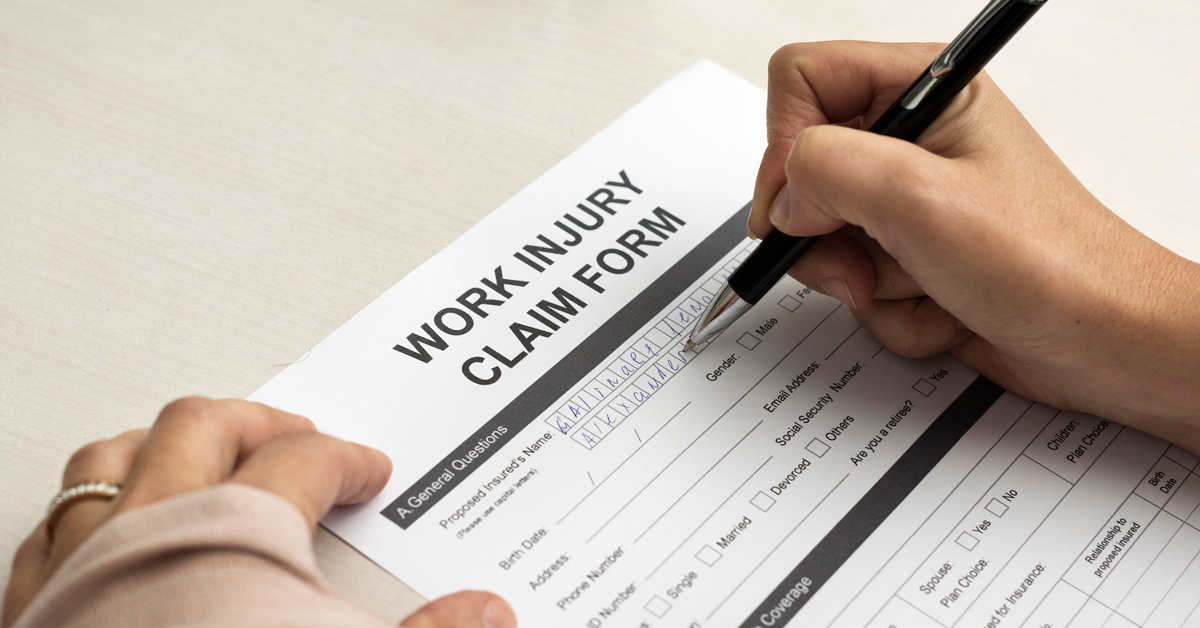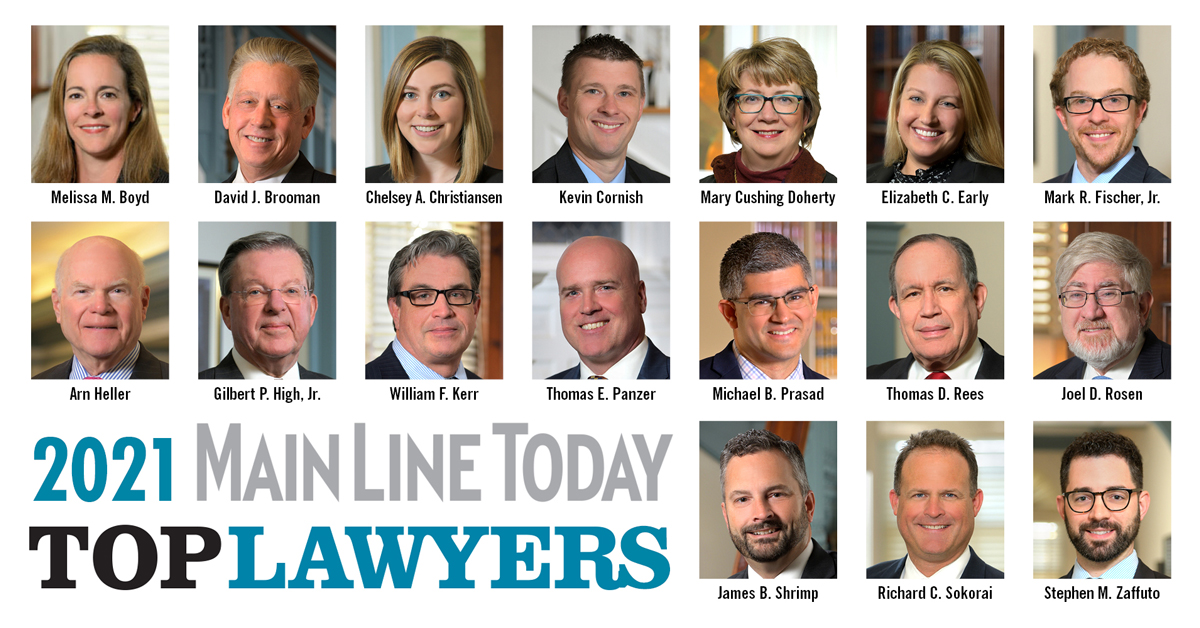Workers' compensation is a required component of employment law in Pennsylvania. It provides financial and medical benefits to employees who suffer work-related injuries or illnesses, protecting employees and employers.
Understanding workers' compensation is a legal obligation. Equally important, it's essential to maintaining a safe and compliant workplace for Pennsylvania businesses. No matter the size of your company, it can help you protect your employees and your organization.
If you own a small business, find a workers' comp lawyer who can offer appropriate guidance.
Overview of Workers' Compensation in Pennsylvania
Workers' compensation is a no-fault insurance program mandated by Pennsylvania, meaning that employees are entitled to benefits regardless of who caused the injury.
It provides wage replacement, medical treatment, and other benefits to employees injured or ill. It also ensures that employees receive prompt medical attention and financial support while recovering.
The Pennsylvania Workers' Compensation Act, established in 1915, regulates and requires workers' compensation insurance. It mandates that nearly all employers, regardless of size, carry it to cover their employees.
It applies to nearly all employers, regardless of size, including private businesses, nonprofit organizations, and even some municipalities. Employers must cover all employees, including full-time, part-time, and seasonal workers.
In 2022, the Pennsylvania Department of Labor & Industry reported over 80,000 work-related injuries, and employers paid out more than $2 billion in workers' compensation benefits. These numbers highlight the significance of this program for both employees and employers and emphasize the need for businesses to understand their obligations under the law.
Failing to comply with workers' compensation requirements can result in severe penalties, including fines and potential criminal charges. Additionally, employers could face civil lawsuits from injured employees if proper coverage is not in place.
What Does Workers' Compensation Cover?
Workers' compensation supports employees who experience work-related injuries or illnesses by covering medical expenses, wage loss benefits, and specific loss benefits.
These benefits are calculated based on the nature and extent of the injury and the employee's average weekly wage.
Here's what it typically covers in Pennsylvania:
Medical Expenses
Workers' compensation covers all reasonable medical care and expenses related to the job injury or illness, including:
- Doctor Visits: Consultations with healthcare professionals.
- Hospitalization: Costs of hospital stays, if necessary.
- Surgeries: Any required surgeries from the work-related injury.
- Rehabilitation: Physical therapy and other rehabilitation services to help the employee recover.
- Prescriptions: Necessary medication to treat the injury.
These medical bills and expenses must relate directly to workplace accidents or illnesses. Employers should ensure that employees receive the necessary care to recover fully.
Lost Wages
Workers' compensation provides wage replacement benefits if an employee cannot work because of the injury. In Pennsylvania, wage loss benefits typically amount to approximately two-thirds of the employee's average weekly wage, up to a maximum amount.
Pennsylvania has different types of wage loss benefits:
- Temporary Total Disability (TTD): When the employee cannot work at all for a temporary period.
- Temporary Partial Disability (TPD): When the employee can work at a reduced capacity, leading to lower earnings.
- Permanent Disability Benefits: Employees who suffer a permanent impairment that prevents them from returning to their previous job.
Specific Loss Benefits
This benefit applies to employees who lose certain body parts, such as fingers, limbs, vision, or hearing. The amount and duration of compensation vary based on the severity of the loss (refer to the Pennsylvania Workers' Compensation Act).
Death Benefits
If an employee dies from a work-related injury or illness, their dependents can receive death benefits. Dependents include family members like a spouse or children. These benefits include coverage for burial expenses and ongoing financial support to help the family during a difficult time.
What Workers' Compensation Does Not Cover
While workers' comp provides broad coverage, there are certain situations where benefits do not apply:
Non-Work-Related Injuries
Workers' compensation only covers injuries or illnesses directly related to the employee's job. For example, the employee wouldn't be eligible for benefits if an injury occurred while playing sports outside of work.
Intentional or Self-Inflicted Injuries
Workers' compensation does not cover self-inflicted or intentional injuries by the employee. However, in cases where an injury results from intentional employer misconduct or hazardous conditions, there may be grounds for additional legal action.
Drug or Alcohol-Related Incidents
If an employee is injured while under the influence of drugs or alcohol, workers' compensation may deny the claim. The burden of proof lies with the employer or insurer to show that substance abuse caused the injury. Employers can conduct drug tests to determine if the injury stemmed from substance abuse.
Violation of Company Policies
Insurance companies can deny a workers' comp claim if the injury occurred while the employee was willfully violating a company safety rule or acting recklessly. However, coverage may still apply in cases of minor rule violations.
Understanding these exclusions can help employers educate their workforce and reduce the likelihood of disputes over claims.
If you're an employer, you can challenge a claim based on any of these concerns. An experienced workers' compensation lawyer can provide guidance. Defending a worker's compensation case can prevent you from focusing on your business, especially as a small business owner.
Employer Responsibilities Under Pennsylvania Workers' Compensation Law
Employers in Pennsylvania have specific responsibilities regarding workers' compensation. Understanding these obligations is crucial to avoiding legal issues.
Insurance Requirements
All employers in Pennsylvania must carry workers' compensation insurance. That applies to most businesses, regardless of size, including those with part-time or seasonal employees. Employers can obtain this through a private insurance carrier or the State Workers' Insurance Fund.
Employers can self-insure only after receiving the Pennsylvania Bureau of Workers' Compensation approval.
Failing to carry workers' compensation insurance can result in severe penalties, including fines, criminal charges, and potential business closure.
Reporting Requirements for Workers' Compensation
The employer must report a job-related injury to their workers' compensation insurance provider and file a report with the Pennsylvania Bureau of Workers' Compensation within 21 days of notification of the injury. However, prompt reporting is essential to avoid penalties and ensure the employee receives timely benefits.
Employers should also keep accurate records of the injury. They can include witness statements, medical reports, and any communication with the employee. This documentation is crucial in case of disputes or investigations.
Safety Programs
Employers are encouraged to implement workplace safety programs to reduce the risk of injuries. Effective safety programs not only protect employees but can also lower insurance premiums and improve the overall workplace environment. Regular safety training and clear communication of safety procedures are critical components of a successful program.
Exclusions to Workers Compensation in Pennsylvania
Although most businesses must carry workers' compensation insurance, some companies are exempt. For example, different compensation laws cover federal government workers, railroad workers, and dockers.
Other exclusions include:
- Agricultural workers may be exempt if they work for fewer than 30 days in a calendar year and earn less than $1,200 from a single employer.
- Laws exclude domestic servants unless the employer includes them under workers' comp.
- Sole proprietors and general partners are typically not required to have workers' comp coverage for themselves.
- Individuals with religious beliefs may be exempt from workers' comp. They must file the appropriate paperwork with the Commonwealth.
Talk with a workman's comp lawyer to determine if you can get by without carrying workers comp insurance.
Consequences of Non-Compliance for Employers
Failing to comply with workers' compensation laws can seriously affect Pennsylvania employers. Understanding these consequences is essential to avoid legal and financial risks.
Legal Penalties
Employers who do not carry the required workers' compensation insurance can face substantial fines and penalties. Penalties start at $2,500 and can include up to one year of imprisonment for each day of non-compliance.
The Commonwealth can sometimes shut down operations until the employer obtains proper coverage.
Civil Liability
If an employee is injured and their employer doesn't have workers' compensation, the employee can sue the employer. The employer could be responsible for paying all medical expenses, lost wages, and additional damages awarded by the court. These costs can be devastating, especially for small businesses.
Does an Employer Have to Hold a Job While an Employee is on Workers' Compensation?
One common concern among employers is whether they must hold an employee's job while on workers' compensation. In Pennsylvania, employers have no legal obligation to keep an injured worker's job open while receiving workers' compensation benefits.
However, employees who qualify for leave under the Family and Medical Leave Act (FMLA) may be entitled to up to 12 weeks of job-protected leave.
There are other essential considerations to keep in mind:
No Legal Requirement to Hold the Job
Pennsylvania law does not require employers to hold an injured worker's job open while receiving workers' compensation benefits. If necessary, an employer can fill the position to maintain business operations.
Protection from Retaliation
Employers don't have to keep the job open. However, they cannot fire or retaliate against an employee solely because they filed a workers' comp claim. Retaliation, such as wrongful termination or demotion, can lead to legal consequences, including discrimination or wrongful discharge lawsuits.
Considerations for Employers
Employers should consider several factors when deciding whether to hold an employee's job, such as the length of the employee's recovery and the impact on business operations. They should also have clear policies regarding job retention during workers' compensation leave.
Employers might also offer a modified or light-duty position. This approach can help the employee return to work while meeting the business's needs.
Best Practices for Workers' Compensation and Employers
To effectively manage workers' compensation and maintain compliance, Pennsylvania employers should follow these best practices:
Maintaining Compliance
- Audits: Regularly audits your workers' compensation coverage and workplace safety practices to ensure ongoing compliance and identify potential risks.
- Keep Coverage Up-to-Date: Verify that your insurance coverage is active and sufficient to meet your business needs. Update your policy if your workforce size or business operations change.
Creating a Safe Work Environment
- Implement Safety Programs: Develop and enforce safety programs tailored to your workplace, including training on proper equipment use, safety protocols, and emergency procedures.
- Encourage Reporting of Hazards: Build a workplace where employees feel safe to report hazards or unsafe conditions. They should not fear retaliation.
Employee Education
- Inform Employees About Their Rights: Hold regular training sessions to educate employees about their rights under workers' compensation laws and communicate the steps to take if they experience a work-related injury.
- Communicate the Claims Process: Ensure employees know the steps to take if injured, including reporting the injury, seeking medical treatment, and understanding how wage replacement benefits work.
By adopting these best practices, employers can create a safer work environment, reduce the likelihood of workplace injuries, and more effectively manage workers' compensation claims.
Experienced Workers Compensation Attorneys Near You
Workers' comp is a crucial element of employment law that every Pennsylvania business needs to understand. Employers can protect their workers and companies by understanding what workers' compensation covers. They should follow legal requirements and use best practices.
If you have questions or need legal guidance on workers' compensation, the team at High Swartz is here to help. Our experienced worker's comp attorneys can provide the advice and support you need to navigate these complex regulations confidently. We work with businesses in Bucks, Delaware, and Montgomery County, and all across Pennsylvania.
Contact us today to ensure your business is compliant and your workforce is protected.










 High Swartz LLP
High Swartz LLP